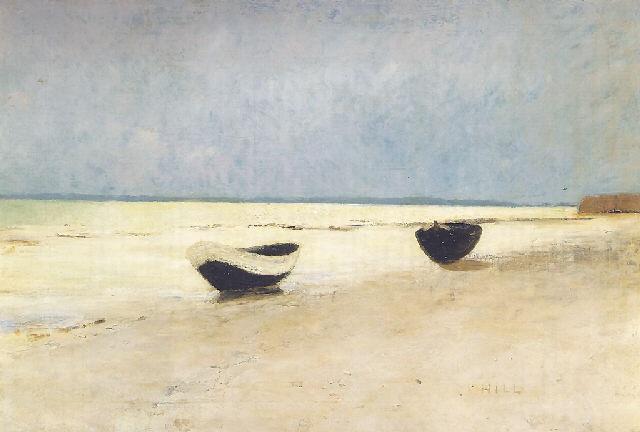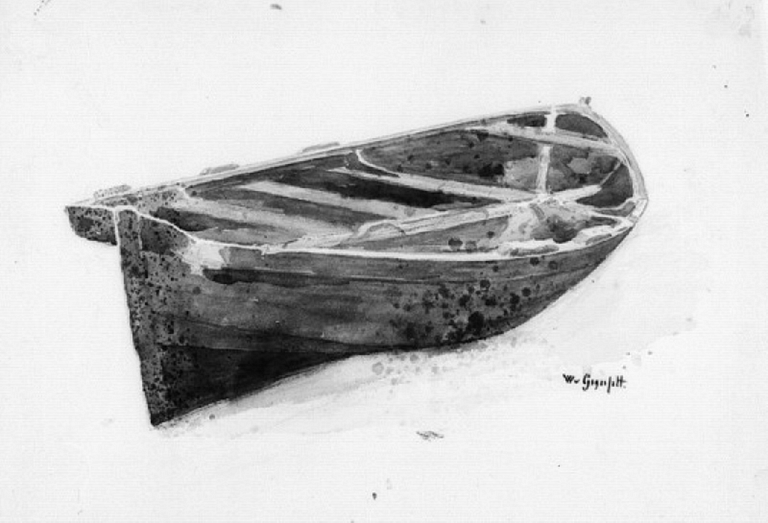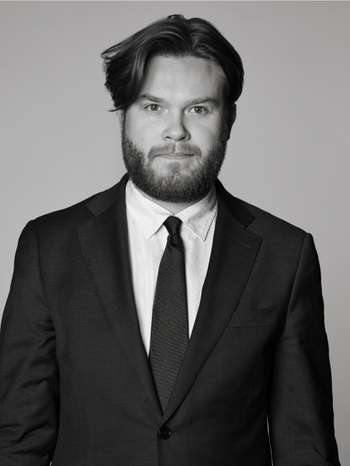Wilhelm von Gegerfelt
Boats on the beach - Skagen.
Signed W de Gegerfelt. Canvas 40 x 54 cm.
Kirjallisuus
V. Loos, Friluftsmåleriets genombrott i svensk konst 1860-1885, 1945, s. 253, 325 not 14.
Muut tiedot
Executed during a visit to Skagen in the summer of 1874. Gegerfelt was then residing in Paris. Gegerfelt visited Skagen on three occasions: 1872, 1874, and 1879. During his stay in 1872, he created a similar motif, "Uppdragna båtar" (Drawn-up Boats), 32 x 53 cm (Loos, op. cit., p. 343). A study of a drawn-up fishing boat, a watercolor, is held in the Nationalmuseum (NMH 37/1942) (see image).
Wilhelm von Gegerfelt is considered one of the foremost representatives of the transitional period between the academic German-oriented landscape painting in the spirit of Nordic Romanticism and the groundbreaking outdoor realism of the 1890s. Von Gegerfelt's free handling of color went on to inspire several subsequent artists, including Carl Fredrik Hill.
After studying at the Royal Academy of Fine Arts in Stockholm, Gegerfelt traveled to Düsseldorf in 1867, where he stayed for five years. He then settled in Paris, where he adopted the name "Wilhelm De Gegerfelt." He remained loyal to France until 1888. He returned to Sweden and settled in his hometown, Gothenburg.
In Paris, Carl Fredrik Hill got to know Gegerfelt. Hill had arrived in Paris in 1873, and Gegerfelt was one of the few Swedes active in Paris with whom Hill associated. In early 1878, Hill's mental health deteriorated. Concerned neighbors summoned Hill's friend Wilhelm von Gegerfelt. Gegerfelt, realizing the seriousness of the situation, took care of Hill to the best of his ability. It was also Gegerfelt who, on January 18, 1878, arranged for Hill to be transported to Dr. Blanche's clinic in Passy outside Paris, where Hill was interned against his will.
In 1876, Hill executed a similar motif in Luc-Sur-Mer in Normandy.


















































